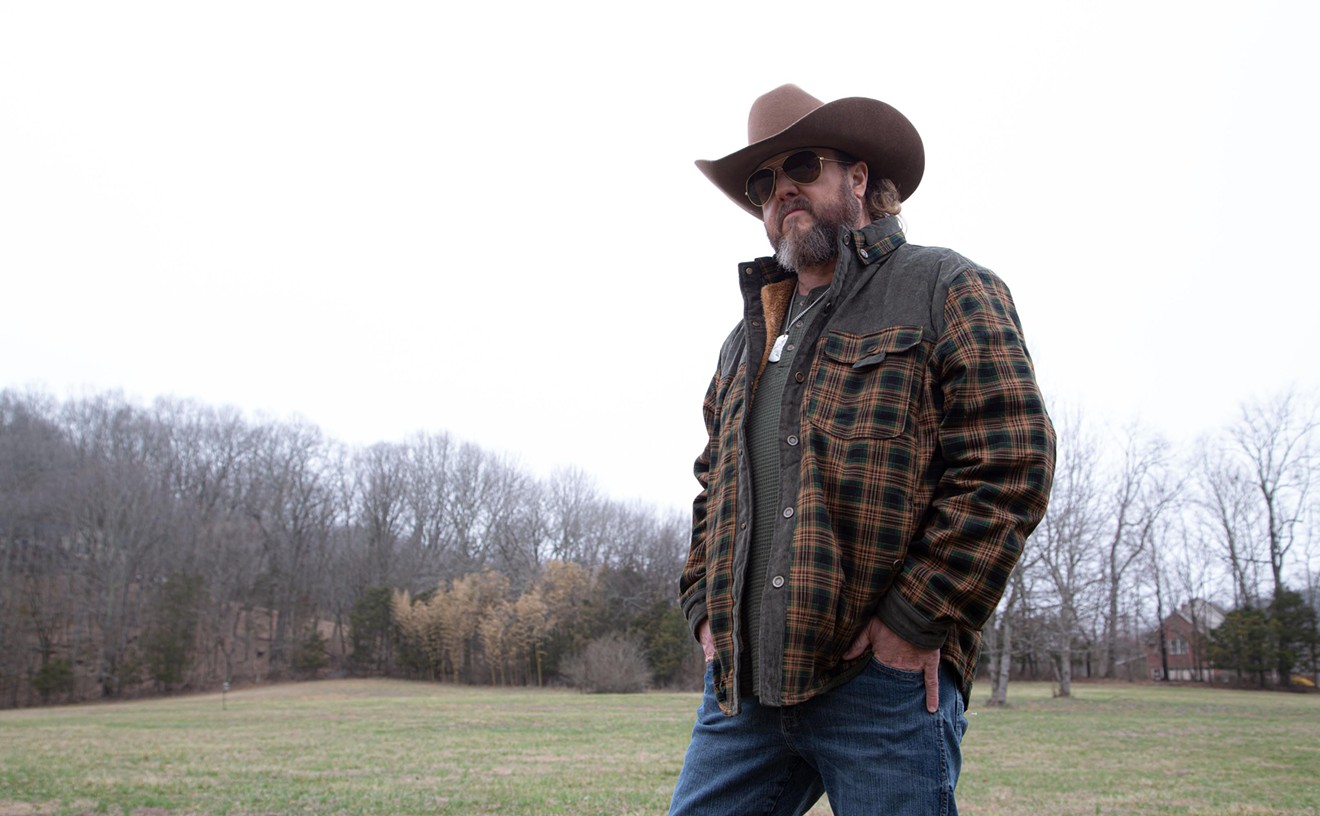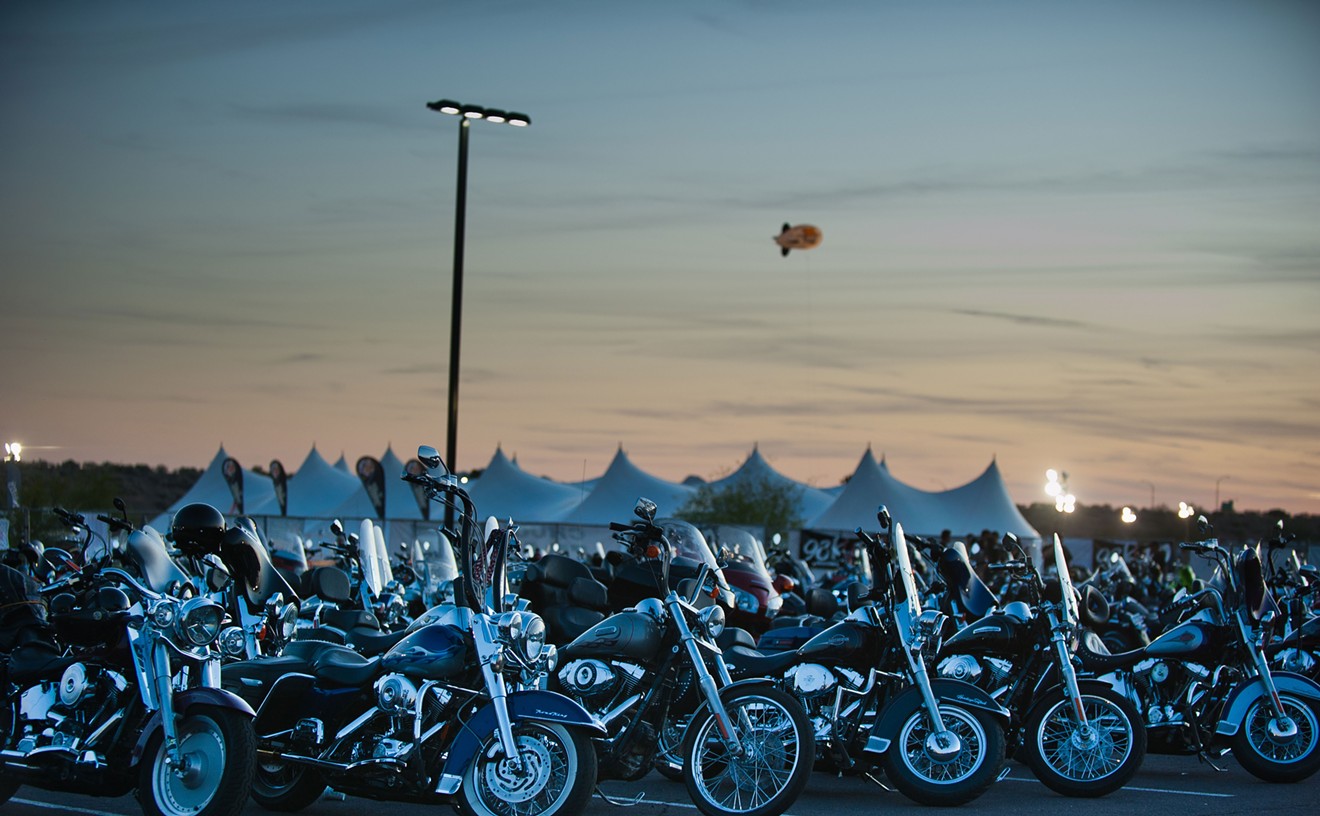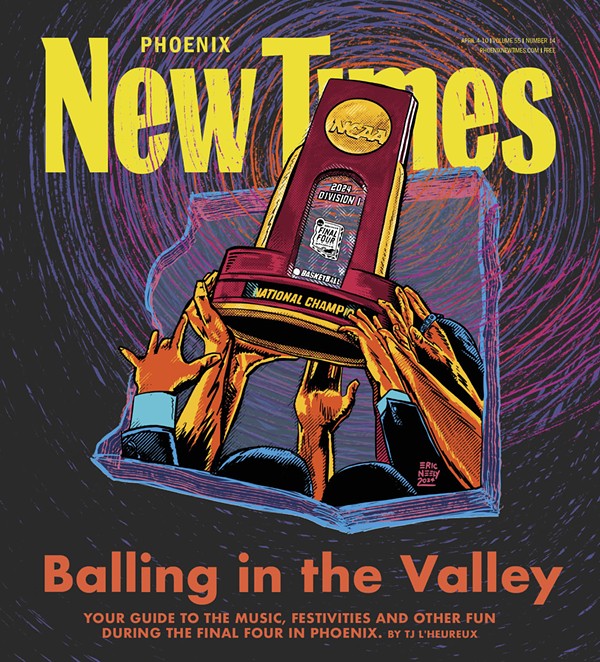Nirvana means absolutely nothing to me. I'm sorry to have to be so blunt, but that's the only way to put it; as much as I enjoy the songs, and as much as I can intellectually recognize the influence it had on the next decade of popular music, Kurt Cobain did not ever take up residence in my conscience, or my rock-star fantasy life, or my angsty teen self-identity, because I did not live in America. I lived in CCM America.
That's Contemporary Christian Music -- the genre in which Michael W. Smith, who is coming to town early next month, is unspeakably famous. And while the world was doing its best to convince itself that grunge was inherently more thoughtful and less disposable than hair metal, those of us who lived in the Christian Bookstore Alternate Universe had our own totally separate cultural touchstones. Here are 10 of them.
Michael W. Smith - "Place in This World" (1990)
Amy Grant -- who was more or less the Elvis of CCM through the '80s -- had an enormous crossover hit with the unflinchingly secular (and suspiciously chaste, in hindsight) "Baby Baby." This worried CCM fans, who had long since taken to a kremlinology that involved counting mentions of the word Jesus to figure out which artists and bands were strong in the faith and which ones weren't.
"Place in This World" was also an enormous crossover hit -- No. 6 on Billboard's Hot 100--and was actually cowritten by Amy Grant. But because it's about "looking for a reason" and "needing your[-or-maybe-Your] light," and probably also because he never had another secular hit like it, Michael W. Smith soldiered on as a full-fledged member of the CCM alternate universe.
Those two songs basically form the central question of CCM in the '90s, one that artists would eventually ask over and over again in song: Do you go mainstream? Do you try to replace God with easily discernible pronouns? Or do you leave in the altar calls and work entirely within the Christian bookstore market?
Eventually this would get really, really tiresome.
Steve Taylor - Smug (1993)
My fiancee is extremely patient with my Steve Taylor fandom, and I thank her for that. (We just bought tickets to his comeback show on Kickstarter, and by we I mean I bought them and now she has to drive to Tennessee with me.) Since you aren't my fiancée, I'm going to do my best to shorten the Chris Farley Show introduction that is begging to come out.In the '80s, Steve Taylor was the first broadly successful Christian new wave type, singing satirical lyrics about churchgoer issues (among other things) in a Bowie-style monotone and selling lots of records. He wore weird outfits, he danced like a crazy person, he sang songs against Jimmy Swaggart and institutional racism and blowing up abortion clinics but also abortion and self-help culture and cultural relativism, which meant that by the end of the '80s he'd basically alienated everybody.
In the '90s, he briefly left Christian music, formed a not explicitly Christian band that got a really good review in Rolling Stone and sold no records, and eventually cowrote a bunch of songs with the Newsboys, who are lurking two listicle pages away. In 1993, he released his last solo album, having ditched the Bowie voice and the synthesizers but continuing to alienate anyone who "loves being politically Koreshed," in this song Rush Limbaugh and Barbra Streisand.
Okay, I'm done.
Audio Adrenaline - Big House (1993)
If you're a secular pop-rock or pop-punk band, the promised land of crossover success is school proms and graduations -- think "Good Riddance (Time of Your Life)" or basically any hair-metal power ballad. If you're a CCM band, the equivalent space is churches, private schools, and youth groups.Both crossovers have their ingredients -- if a school-function hit has to wear its heart on its sleeve and reach for maximum nostalgia or melancholy, a church song has to have a big, high-concept hook and needs to be easy to sing in a large group, off an overhead projector. Audio Adrenaline -- who, like several bands on this list, began as a weird late-'80s hip-hop thing and later buried that origin as deeply as they could -- nailed the mix with "Big House," which is about a heaven of big houses and yards "where we can play football."
Say what you will about what that says re: their audience -- this heaven looks a lot like the place where I grew up -- it caught on with a lot of people.
Newsboys - Shine (1994)
I don't know what the public school equivalent of "Shine" was, so you'll have to tell me: What did they play over and over at all of your trips to the skating rink? The Newsboys toured constantly, changed their sound every album -- dance-y pop in 1994, post-grunge in 1996, adult contemporary in 1998, unmitigated disco in 1999 -- and were unassailably Christian, in the can-I-play-this-song-to-my-pastor sense.But while their aughts incarnation went full-on worship-album, they were pretty subversive all through the '90s, mixing songs about doubt and ecumenism and loving just about everybody in among the youth group sing-alongs, like this one. I have come only recently to the sad conclusion that I will never be able to find this song (or the one beginning "Isabelle is a belly-dancer," or the one about breakfast not being served in hell) in a karaoke bar.
DC Talk - Jesus Freak (1995)
If you were an evangelical in 1995, or just in the Devotional Bible section of a Wal-Mart, this song was absolutely impossible to avoid.One not-immediately-apparent reason people have trouble taking mainstream CCM bands seriously -- wrongly, I think -- is that it's clear from a lot of their career paths that making music is not the most important thing in their life, the thing through which they are self-actualized.
It's clear because the kind of music they make often has as much to do with secular trends as it does their own influences. DC Talk began their career in the late '80s as full-on, extremely dated-sounding rappers. In 1992, they went New Jack. In 1994, with grunge having happened, they made an abrupt left turn and released "Jesus Freak," which is both the CCM "Smells Like Teen Spirit" and really transparently trying to be the CCM "Smells Like Teen Spirit."
Likewise, their next and final album, Supernatural, sounds much more like 1998 than it does Jesus Freak. (It also featured a salvo in the hey-don't-water-down-your-lyrics-with-pronouns war with a very expensive-looking video, "My Friend (So Long).")
Earlier this year tobyMac, the band's most successful alum, topped Billboard's album chart with an album that sounds like nothing so much as 2013, right down to the, uh, Christian dubstep. it doesn't make for great music, necessarily, but I've never understood the idea that this chameleonism is dishonest -- it follows directly from their stated goal, which is basically ministry disguised as pop music. (Another of their members is the lead singer of the current incarnation of the Newsboys, and I do not have any good things to say about that.)
Jars of Clay - Flood (1995)
DC Talk and Jars of Clay coexisted in a bunch of CD wallets, but they achieved their mid-90s fame very differently -- Jars of Clay was the epitome of the pronoun-y crossover success, an alternative version of the Amy Grant maneuver that had caused so much hand-wringing in the late '80s."Flood," which you probably heard mixed in with secular post-grunge in 1995, has a borderline Christian shibboleth ("But if I can't swim after forty days") and a chorus that people could reasonably, if a little co-dependently, dedicate to their significant other: Lift me up when I'm drowning / I'm weak and I'm dying / I need you to hold me / keep me from drowning again.
"Jars of Clay" is itself both an earthy, post-grunge-sounding band name and a phrase plucked from the NIV Bible, the official translation of people who listen to Christian hits radio. It worked: few Christian (and Christian-label) bands have ever floated so effortlessly between the Dove Awards and the Grammy Awards.
Rebecca St. James - God (1996)
Rebecca St. James, like the Native Americans who came before her, uses every part of the Christian bookstore: Books (about dating and abstinence, among other things), movies, and a string of CDs dating back a good 20 years.Famously unmarried (and abstinent) for the first 19 years or so of that career -- she wrote a book and a single called "Wait For Me," which is about what you think it's about -- she married a younger musician and missionary who nobody knew anything about named Cubbie Fink in 2011. That was in April, a couple of months before his band, Foster the People, sold a billion downloads of "Pumped Up Kicks."
You'd be much more surprised by that turn of events if I'd gotten this script to Paul Harvey in time.
The O.C. Supertones - Supertones Strike Back (1997)
Third-wave ska might have been a bigger deal -- or at least a longer-lasting deal -- on the Christian music circuit than it was elsewhere. Among other bands you had the Big 3, which offered screamier (The Insyderz), punkier (Five Iron Frenzy), and praisier (the Supertones) options for the discerning Vans-owner. I was a Five Iron Frenzy guy -- the reunion album they released this year, following a successful Kickstarter, is actually really good -- but the Supertones, much more evangelism-oriented, were the youth-group-default.Like the other third-wave ska bands, only maybe a little later, Christian ska's luminaries eventually had to figure out what they were going to do once the trend crested. The Supertones went with a weird pop/hip-hop hybrid that helped them keep up the momentum until their 2005 break-up.
The W's - The Devil Is Bad (1999)
Yes, we had our own swing revival, and yes, it lasted about as long as yours, and yes, lots of youth-group 13-year-olds were surreptitiously asking each other what pomade was, and how to get some of it.The only difference, ironically, is that Christian swing bands didn't find a second life in seasonal Christmas-music tours like Brian Setzer and company did. Hey, if you see Bill O'Reilly, let him know I left a voicemail.
Steven Curtis Chapman - Dive (1999)
Of all the people on this list I find Steven Curtis Chapman the hardest one to explain, for some reason. "Dive" -- which was a huge, huge hit in 1999 -- is evidence that, as in contemporary country music, white, male, solo, guitar-oriented stars have a much longer shelf-life than they do in unhyphenated pop today.For a certain class of evangelical 14-year-old "adult contemporary" is basically just contemporary.
Top 40 Songs with Arizona in the Title 9 Tips for Using A Fake ID To Get Into A Show Why Indie Band Oregon Trail Is The Hardest Game Ever The 30 Most Disturbing Songs of All Time
Like Up on the Sun on Facebook or follow us on Twitter for the latest local music news and conversation.










